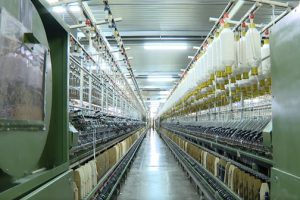
Recently, researches published in various scientific journals found that air pollution has intensified the COVID-19 pandemic. But the lockdown and related measures implemented by countries to stop the spread of COVID-19 have also led to a decrease in economic activities and drop in road transport, temporarily cleaning skies and decreasing levels of certain air pollutants. The COVID-19 environmental factual effects over different countries are showing a positive side for the environment. For instance, the nationwide lockdown leads to significant decline in nitrogen dioxide (NO2) emission in Italy.
Recently, satellite images showing dramatic drops in air pollution in coronavirus hotspots around the globe have circulated widely on social media, offering a silver lining to an otherwise very dark story. But they are also a graphic reminder of the climate crisis that will continue when the pandemic passes.
When the lockdowns are lifted and life returns to what it once was, so too will the pollution that clouds the skies and with it the greenhouse gases that fuel global warming.
Yet, this was supposed to be “a pivotal year” for those efforts to address climate change, as UN Secretary-General António Guterres put it at a recent briefing on the UN’s annual climate summit, which was scheduled to take place in Glasgow in November.
Ahead of the summit, 196 countries were expected to introduce revamped plans to meet the emission reduction goals established under the 2015 Paris Agreement. Yet on April 1, in the face of the spreading coronavirus pandemic, the UN announced that it was postponing the summit until sometime next year.
It was only the latest sign that the casualties of COVID-19 may include global efforts to address climate change. Other international meetings related to climate — on biodiversity and oceans — have also been disrupted. While the need to mobilize governments to act on climate has never been more urgent, the inability to gather world leaders to address the issue could make it all the more difficult to do so.
The coronavirus crisis also threatens local efforts to meet the climate commitments that have already been made.
Governments have a human rights obligation to protect people from environmental harm — and this includes a duty to address climate change.
The real impact of the coronavirus crisis on climate could depend ultimately on choices made regarding
how governments want their economies to look when they recover—and, in particular, how much they will continue to rely on fossil fuels. Meeting the Paris Agreement’s central goal of limiting global warming will require reducing this reliance.
And here the crisis might offer some grounds for hope.
Many see the efforts to contain the economic fallout of the pandemic as an opportunity to accelerate the shift to cleaner energy alternatives, such as solar and wind. Options could include ensuring that economic stimulus programs prioritize investments in cleaner energy, or conditioning assistance to businesses, especially in carbon-intensive sectors, on drastic cuts in emissions. Similarly, financial industry bailouts could require banks to invest less in fossil fuel and more in climate change mitigation and resilience efforts.
The struggle to ensure that human rights protections and climate commitments are not COVID-19 collateral will continue in the US, the EU, and elsewhere as governments face the task of restarting their economies in the weeks and months to come. The outcome will define our capacity and will to mitigate what threatens to be a global catastrophe far greater even than the viral pandemic.
Meanwhile despite the threat the COVID-19 poses, Ethiopia remains committed to its tress plantation and green campaign. Recently, Prime Minister Abiy Ahmed visited preparations for the upcoming green
legacy season. It is to be recalled that close to 4 billion seedlings were planted last year. Based on last years’ experience, the country aims to plant 5 billion seedlings this year.
During the field trip, the Prime Minister said more than 5 billion tree seedlings are being raised in 3,800 sites countrywide for the upcoming annual planting season.
Planting of the seedlings will start in mid-June this year if the country beats the spread of the coronavirus, he said.
Among the seedlings raised for planting purposes include avocado and mango as well as other important plants that will have long-run benefits to the society.
Recalling that 4 billion tree seedlings were planted nationwide during the last rainy season, the Premier said that most of the seedling has grown well due to better rainfall and proper protection throughout the year.
According to the Prime Minister, the country plans to plant up to 20 billion seedlings over the next four years, including the upcoming season.
But, different individual fears that the COVID-19 will affect the planation process to be done after the coming two months. Because of this, huge public mobilization is needed to realize the targeted amount seedlings plantation. If the pandemic is not contained it will have its impact on the country’s positive moves to contribute its part to control climate change through a huge seedling plantation. Thus, fears are there that the public gathering restriction might affect the targeted amount planation.
The Ethiopian Herald April 30/2012
BY TEWODROS KASSA




